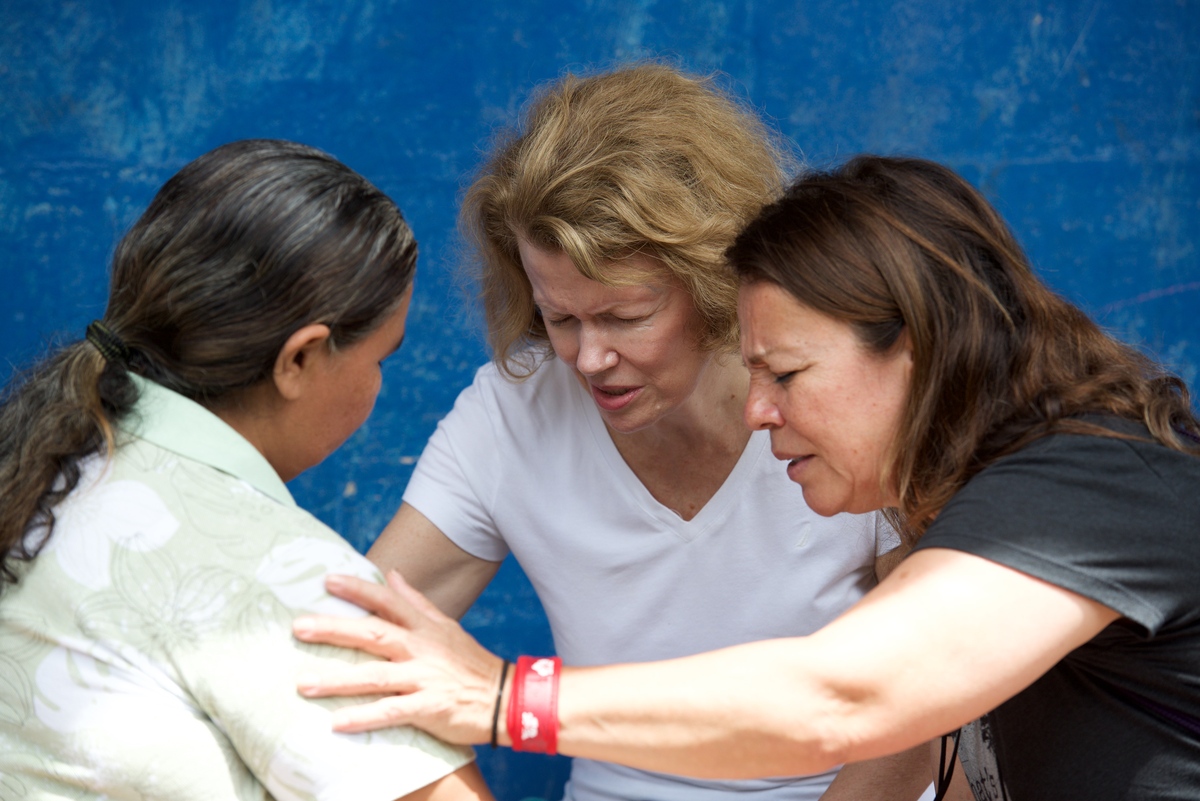Rescue in Ivory Coast - Project Rescue Abidjan
AfricaOne night, a schoolteacher, Bintou* and her husband drove down Abidjan’s busy streets, headed home from an evening out. (*to protect her identity, we have changed names). The streetlights of Ivory Coast’s capital illuminated the crowds walking alongside the road, between multi-story apartments and office buildings. The weekend nightlife was beginning, so they took a side street to avoid the traffic. Winding down a road they wouldn’t normally take, they briefly stopped, and a woman looking for sex work approached the car. Suddenly, Bintou’s heart skipped a beat. She recognized the woman – one of her high school students. The student recognized Bintou and abruptly walked away, pretending not to notice. “That caught me in my heart,” says Bintou. She had never imagined one of her students would be on the street.
On Monday, Bintou discreetly pulled the student aside and asked about the night before. As she talked to the student, she realized this student was a human trafficking victim. Bintou also learned this student was not alone. Her class was filled with desperate, vulnerable young women. Their stories of coercion, trafficking, exploitation and abuse echoed the experiences of many vulnerable women in the Ivoirian capital.
“There are so many [trafficking victims] in Abidjan because it’s a hub,” says Bintou. “Many come from other countries – traffickers don’t tell them where they are going or what they will be doing. They just tell them that they’re going to get work and maybe raise money to go to Europe or America.”
“Many of these girls are coming from villages to go to high school,” adds Assemblies of God World Missions West Africa Area Director, Brent Teague. “Now they are in an urban setting for the first time and traffickers take advantage of that, promising them work and opportunities.”
Wherever they come from, many are the victims of crises and tragedies that expose them to trafficking. “We’ve learned that almost 99.9% of the time, there is a traumatic experience or worst-case scenario where [women] are literally abducted and trafficked,” says Jonathan Barratt, CEO of the Project Rescue foundation, an anti-trafficking ministry that rescues and rehabilitates trafficking victims through a network of safe houses worldwide. “It's not something these women did or chose, it's often what's done to them.”
Coming face to face with the reality of human trafficking in her classroom, Bintou took action. She started with small steps. “I changed the way I taught,” Bintou remembers. “I no longer just spoke to their heads; I wanted to talk to their hearts.” She personally invested in her students, showing them the love of Jesus.
Bintou’s life has been marked by a call to care for others. Bintou was born into a large Muslim family. At 15 years old, she became the primary caretaker for her five younger siblings when her father and then her mother unexpectedly died. “The tragic early death of my mother made me take on a mother-like role,” says Bintou. “I didn't have a normal life of a young woman – I had to become a parent very early.”
Dealing with tragedy and caring for her siblings became more complicated when a younger brother fell into drug addiction. After years of exhaustive care, Bintou was almost ready to quit. “I wished that my brother was dead – that I was dead,” she says. In that critical moment, she remembered the words of a classmate five years before. This classmate had told Bintou “Jesus loves you” every day. Bintou decided to take her brother to the local Assemblies of God church her classmate attended.
At this church, an Evangelical Assemblies of God of Ivory Coast church, the pastor preached about Jesus raising Lazarus from death to life. The pastor called people forward for prayer. Bintou, still a dedicated Muslim, went up to pray. “I would say, ‘I’m not here for me. I’m here praying for my little brother. He needs Jesus,’” she says.
For fifteen years, Bintou remained Muslim but prayed Jesus would save her brother. The day before he passed away, Bintou talked with him one last time. He told her he had accepted Christ, and she learned the other patients at the hospital called him “pastor” because he was preaching the gospel. Seeing her brother saved in his final hours, Bintou finally accepted Christ for herself.
Bintou’s lifelong dedication to caring for others and personal relationship with Jesus’ saving power drive her ministry. After working in small ways with her students, the school principals noticed Bintou’s students were excelling academically and emotionally. They encouraged Bintou to do more. With this confirmation, Bintou brought together women from her local Assemblies of God church and founded Femmes de Salem Internationale, or Women of Salem International in 2002.
Bintou and Women of Salem started raising awareness about human trafficking in Abidjan. One Sunday, nine young women came to church looking for help. Their friend had been killed by a trafficker. Bintou was unsure how to help, so she started by taking Women of Salem team to talk to trafficking victims on the street. Anti-trafficking ministry, however, can be complex and risky. Traffickers threatened Women of Salem multiple times. The situation became increasingly dangerous. “We stopped going to those areas, but our hearts were still for them,” says Bintou. They did not stop working, however, and looked for new ways to reach trafficking victims.
As Bintou and Women of Salem developed a new approach, a series of divine appointments allowed them to build an effective and sustainable ministry.
Women of Salem attracted the attention of the Ivoirian government – which was also trying to stop human trafficking – and received a sponsorship to attend an anti-trafficking seminar in Europe. There, Bintou met Fiona, the Project Rescue director for all Project Rescue ministries in Spain. Fiona came to Ivory Coast and helped Women of Salem develop a strategy. “[Fiona] took us to the street at night and she brought us back to our first love which is ministry to [trafficking victims on the street],” says Bintou. With a strategy in place, Women of Salem began working with trafficking victims again.
Fiona also told Project Rescue global directors, Jennifer and Jonathan Barratt, about Bintou’s work. The Barratts were eager to learn more and asked AGWM Africa missionaries for more information. Brent Teague knew Bintou through the Ivoirian Assemblies of God. Acting as a vital connection, he arranged meetings between the Barratts, Bintou, and local Ivoirian assemblies.
“It was just a beautiful God-ordained moment,” says Jonathan Barratt. “Through the local missionaries – Brent and Shelley Teague – we were able to meet Bintou, the volunteers, and the local staff. Then, around her dinner table, Bintou shared her vision to launch a safe home – a place of rescue for women who are victims of trafficking. We told Bintou ‘Project Rescue wants to get behind what you're doing.’”
Project Rescue helped Women of Salem purchase a property in Abidjan, renovate the existing building, and prepare for expansion. Project Rescue also began sending teams to train Women of Salem in accounting, technology, and counseling expertise to run the safe house. Brent Teague helped them set up a business so the safe house can cover its monthly costs without U.S. support.
Through these God-ordained connections, Women of Salem will have the facilities – starting in August, 2025 – to rescue and rehabilitate victims of trafficking through the long-term process of recovery.
Bintou hopes the safehouse will shelter women who may fall victim to re-exploitation. “They could come today, but not tomorrow,” says Bintou. “One girl stayed with us three years, but when she got COVID during the pandemic, she disappeared, and we still haven’t seen her – we think that with the house, we can shelter them and help with [regular, consistent services].”
Skills-based education will help women live independently after recovery. “Education and/or vocational training are two of the most practical ways to help someone find their way out of exploitation,” adds Jonathan Barratt. “If you rescue someone, but you don't give them tools to provide for themselves, they are incredibly vulnerable to re-exploitation.”
As a secure, permanent shelter, the safe house supports anti-trafficking ministry around Abidjan. Ivoirian Assemblies of God churches who minister to victims of trafficking will direct women to the safe house while AGWM Africa missionaries will partner with Women of Salem to proactively stop trafficking before it happens.
Most importantly, the safe house is place for victims of trafficking to encounter God’s love. “Jesus is the X factor in everything that we do,” says Jonathan Barratt. “It's the transformation power of Jesus that truly heals.” Bintou has seen God’s miraculous power time and time again in their rescue efforts. God’s power was essential for women like Blessing.*
Blessing was a trafficking survivor. She paid off her traffickers but didn’t know where to go and was re-exploited. One day, a car pulled up to her on the street. She was afraid, but a voice called out, “Jesus loves you.” Hearing those words, she fell to her knees, crying. She told the people in the car, “Please, help me!”
The night before, God had given a local believer instructions to find Blessing. This believer was reluctant at first but God urged them on. They gathered their friends and started driving around the city. The believers drove and prayed for direction. God led them, as if they were following a Holy Spirit GPS. Suddenly, they saw Blessing and knew this was who God had sent them to.
The believers discretely got Blessing’s phone number, called her the next day, and arranged a meeting between Blessing and Women of Salem. Today, Blessing is a vital part of Women of Salem, connecting them with other trafficking victims. “Today, Blessing is the one that brings other girls to us,” says Bintou. “To me, her whole story is a miracle.”
Set on a firm foundation, Bintou and Women of Salem are eager to rescue and help more and more trafficking victims in Abidjan. Relying on vital partnerships with the Ivoirian Assemblies of God, AGWM Africa, and Project Rescue, they offer refuge to trafficking victims and proclaim Jesus – the ultimate rescuer. With a permanent safe house and the support of everyday prayer, they hope for more “Blessings” and more miracles.
By Alex Goodrich





















